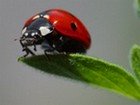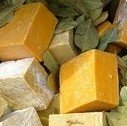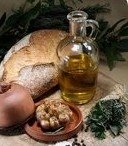Help with Coccidiosis Epidemic
by Gregory Holden
(England)
I recently bought in some parent stock poultry which were found to have cocci. They were +16 weeks old and some lived and a half the stock died.
Knowing this when I started breeding and hatching poultry on my parents' old poultry farm we disinfected the site and started hatching.
At six weeks old the first batch of chicks started to show all the signs on Cocci so I had a vet carry out a postmortem and he confirmed cocci and mycoplasma.
I treated for both but the birds carried on dying.
I cleared away the bedding every week, treated with Lime and Stylosin but still the cocci kept reinfecting and infecting the next hatch.
I hatched circa 40 birds at a time. They were kept warm and dry.
As a last resort I tried vaccinating with Paracox. I kept the birds at a different site and disinfected the equipment with Bioocyst. This also failed with over 70% of the hatch dying.
Due to this I have had to stop breeding poultry at both sites till I can either find a new site or find a successful vaccination plan and a way of removing the oocyst from my sites.
My parents reared poultry for 60 years in large numbers but never had this problem. I am so disappointed as I love poultry and rue the day I brought somebody else's stock onto site and created a cocci epidemic.
If you have any advice on this I would love to hear.
Greg
**************************************************
Greg,
First of all we are very sorry to hear about your coccidiosis problem and your story is a warning to others if they are thinking about getting new chickens.
You have to know your supplier really well and to make sure that they have a good reputation for selling disease-free stock.
However, at this stage, it doesn't solve your problem.
You mention that at +16 weeks some of your chickens lived, while others die. It is only after 14 - 16 weeks that chickens can develop a resistance to coccidiosis.
Those that survive will have developed an immunity to the disease, but unfortunately this immunity is not passed on to their offspring.
The life-cycle of coccidiosis is such that although they may be inhibited by cold weather as soon as the weather warms up, they are back with a vengeance. Due to their fast reproduction, as well as survival without a host, this disease is extremely difficult to eradicate.
You don't state whether you are housing the poultry in sheds, or whether they have access to pasture as well.
If you are keeping chickens in sheds, these will need to be cleaned out completely, from stock and bedding, floor material etc, and stripped to the bare bones.
You will now need to disinfect the sheds, but the ONLY disinfectant that will kill the oocysts is ammonia. Liquid ammonia, or even household cloudy ammonia, used at a 1 per cent dilution kills coccidia in 24 hours.
Spray every square inch of that shed. However, this is not pleasant to work with and you will need to make sure that you are wearing a mask and are in a well ventilated area.
Keep the sheds unoccupied and spray the whole lot again a week later, just to be on the safe side.
If you are keeping chickens on pasture as well, they will have to be relocated to clean land. And you will need to keep rotating your flock so that you are giving them clean land at all times.
In addition to good pasture, you can also help with your chickens' health by planting the pasture out with a number of plants known to for chicken health.
Here are some of the best plants to grow to keep your chickens healthy in the future. And if you are keeping the chickens in sheds, you can still give these herbs and plants to your chickens as part of their diet:
Wormwood has remarkable pest fighting properties. And works well at getting rid of both
internal and external parasites. An ideal plant material to place in nesting boxes.
Peppermint assists with internal and external parasite eradication.
Citronella also known as lemon grass, forms large clumps of aromatic long leaves that keeps away flies, fleas and mites away from the coop area. The chickens eat the tips and brush against the bushes when planted close by.
Dandelion is a stimulant to the immune system.
Yarrow is a medicinal herb used as an antiseptic and digestive aid. In alternative medicine, yarrow is used against colds and skin irritations.
Sage also has health promoting properties.
Nasturtiums are loved by chickens. They eat the juicy leaves and flowers helping to rid them of any internal parasites.
Parsley is a good tonic for chickens, as is, aloe vera.
If you read my posts on keeping chickens you will see that I often mention using garlic, yogurt and apple cider vinegar for chicken health.
Garlic is antimicrobial and antifungal, it also lowers cholesterol and has circulation benefits.
Yogurt is good for intestinal health. However, the one that is indispensable is the apple cider vinegar.
Apple cider vinegar is rich in vitamins, minerals and trace elements, especially potassium.
In chickens it has been shown to lower the pH in the digestive tract which will make an environment less welcoming to pathogens reducing common infections and increasing resistance to disease. Typically, you can use 1/8 – 1/4 of a teaspoon of
apple cider vinegar to every 110 ml of water or 4.5 - 8.5 teaspoons per gallon.
This will also discourage algae growth in your water. It should be given for 2-3 days at a time.
And finally, when you have an outbreak of coccidiosis, and you have clean sheds and clean bedding, no over crowding and good ventilation, it could be because your poultry has low levels of copper in their systems.
You will need to rectify this by giving them copper sulfate.
Dissolve one pound of acidified copper sulfate in one gallon of water. Take one ounce of this concentration and mix with one gallon of their drinking water.
Give your chickens this copper sulphate solution every day for a week. The oocysts will not survive in the gut with the copper and will die. Just remember not to put this into metal watering dispensers.
Wishing you success with your new flock once you have the coccidiosis under control. Remember, this is more common than you think, as they are everywhere. The trick to to make sure that it doesn't get the upper hand. Balance, is the key!
Regards
Kathryn
Countryfarm Lifestyles
Did you find this page helpful?
Sharing is a way of saying, "Thanks!"
Follow Us and Keep Up to Date
Go back to the Home Page





